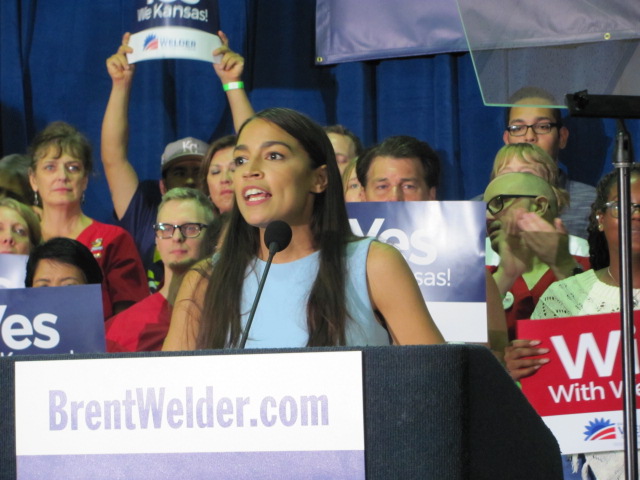Organization Trends
Democratic Socialists of America: The New Democratic Kingmakers?


Like the event horizon of a black hole, a theoretical line where the force of gravity is so powerful that not even light can escape, the Democratic Party faces its own event horizon: the rise of the Democratic Socialists of America (DSA). The 2018 New York primary contests were the latest electoral example of candidates endorsed and supported by the DSA who defeated establishment politicians. Even more “mainstream” Democrats had to swing to the left in order to save their seats over the past two years. Moderate Democrats have pointed out that only half the candidates running with DSA endorsements won their primaries, but even this shift represents a worrying trend that Americans ought to cautiously consider.
The DSA has been the talk of Democratic circles since Sen. Bernie Sanders (I-VT) showed himself to be a contender against the Clinton machine in the party’s 2016 presidential primaries. As the self-reported “largest socialist organization in the United States,” with membership allegedly multiplying tenfold from 5,000 to 50,000 people since the 2016 election, the DSA’s version of “democratic socialism” is now undeniably an important element of a major American political party. This was most apparent when the long-time New York Democratic Congressman Joe Crowley, the chairman of the House Democratic Caucus, lost his primary to the newcomer Alexandria Ocasio-Cortez and her far-left-wing platform. Not only was her victory a rebuke against the establishment, but also, according to Democratic National Committee (DNC) chairman Tom Perez, she is “the future of [the Democratic] party.”
Ocasio-Cortez is not alone. DSA member Julia Salazar defeated State Senator Martin Dilan (D-Brooklyn) despite facing multiple scandals (most notably apparently lying about her past); Democratic primary voters were able to overlook the scandals in favor of her socialist platform.
There were also plenty of victories for other far-left newcomers like Elizabeth Fiedler, Sara Innamorato, and Summer Lee. Even Gov. Andrew Cuomo needed to run to the left in order to avoid losing the governorship to “Sex and the City” actress Cynthia Nixon. These primary successes are on top of a previous 75 percent electoral increase for DSA supported candidates in 2017, not just in New York, but across the country. What has been happening in New York and other left-leaning states will surely have ramifications in even some of the more conservative regions of the country.
The DSA is not well understood and the group’s vision of socialism appears to be even further left than most people recognize. This insurgent DSA ascension within the Democratic party pressures even mainstream liberal candidates to support government-controlled healthcare (under the euphemism Medicare for All), abolishing Immigration and Customs Enforcement (one of the only times a socialist might shrink government), and state ownership of industry and redistributing wealth—all of which would have been considered extreme positions fairly recently.
The 2016 election resulted in Republican control of both chambers of Congress, the Presidency, 33 Governorships, and a majority of state legislatures. These losses pulled Democrats even further toward the extreme left according to the Pew Research Center. The DSA has capitalized on Bernie Sanders’s popularity, millennials’ disillusionment with the American Dream, and frustration with Wall Street-aligned Democrats like Hillary Clinton. During the Obama Administration, the Democratic Party moved progressively toward the far left, holding the belief that demographic shifts–the “Emerging Democratic Majority” of Center for American Progress researcher Ruy Teixeira–would ensure future Democratic victories.
The closest comparable example in recent history was the rise of the Tea Party within the Republican Party during the 2010 midterm elections, but even that does not capture the complete shift within the Democratic Party. Just imagine if, in 2014, the then-chairman of the Republican National Convention (RNC), Reince Priebus, said David Brat was the future of the Republican Party, after Brat defeated the former Majority Leader Rep. Eric Cantor (R-VA). In fact, the conflict between the Tea Party and establishment Republicans has remained an ongoing issue, but that does not appear to be the case within the Democratic Party.
Neither the Bernie Sanders-inspired Democratic Socialists nor the DSA proper represent the mainstream Left, but once the precepts of socialism are adapted as the mainstream opposition to a controversial President, it might not be long until they do become archetypal candidates running on the Democratic ticket.



